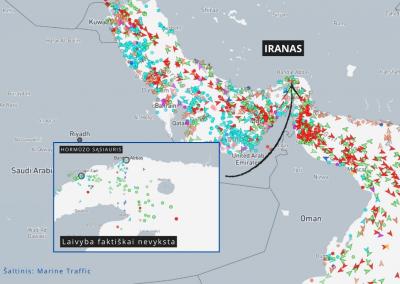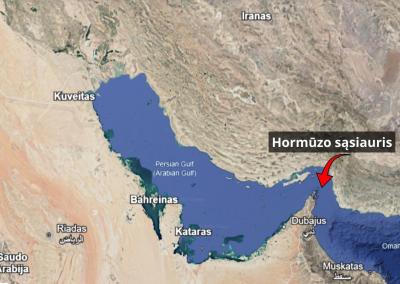LTG terminated the Port Gates contract for the possible shipment of Belarusian fertilisers legally
According to the report, the Vilnius City District Court agreed with LTG Cargo's position on 14 March.
The court ruled that the fact that „Uosto vartai“ refused to sign two declarations concerning the place of origin of the cargo manufacturer, confirms that the company did not ensure that the urea transported was not produced by the Belarusian fertiliser company „Grodno Azot“.
„The„Port Gate“ – BNS) at„the„ transport of„Belarusian„ mineral fertiliser&dquo; should have been 100 % guaranteed. When the company did not sign the declarations made by the defendant („LTG Cargo“ – BNS) twice, the defendant had the right to terminate the contract as a company that does not inspire confidence, as the court decision cited in the case reports.
„Uosto vartai“ argued before the court that it had submitted documents proving that the fertiliser is produced in the Belarusian company „Technospectrading“, which is not sanctioned.
The court pointed out that the March 2023 resolution of the Klaipėda Division of the Customs Criminal Service, which is considered official evidence and has a higher probative value than the certificates issued by Belarus, states that „Technospectrading“ is only a front for the sanctioned company.
„The companies „Texnospectrejding“ and „TexnospectrejdingEksport“ act as front companies on behalf of which the Belarusian company „Grodno Azot“ indirectly acts, – the court said.
In addition, the court said, the fact that „PortGate“ stated that „Technospectrading“ signed the declaration and that should have been sufficient and that it should not have to sign the declaration showed that the company could not provide full reliance.
LTG Group Head of Business Resilience Gediminas Šečkus said that compliance with sanctions requirements is the responsibility of all entities, both in terms of their contractual obligations and in terms of European Union regulations and Lithuanian legislation.
„LTG Cargo“ customers have a proactive duty to prevent attempts to circumvent sanctions requirements or to prove to the carrier that there are no sanctioned entities or products in the logistics chain“, – – šime tagged G. Šečkus reported.
The court's decision is subject to appeal.













































































































